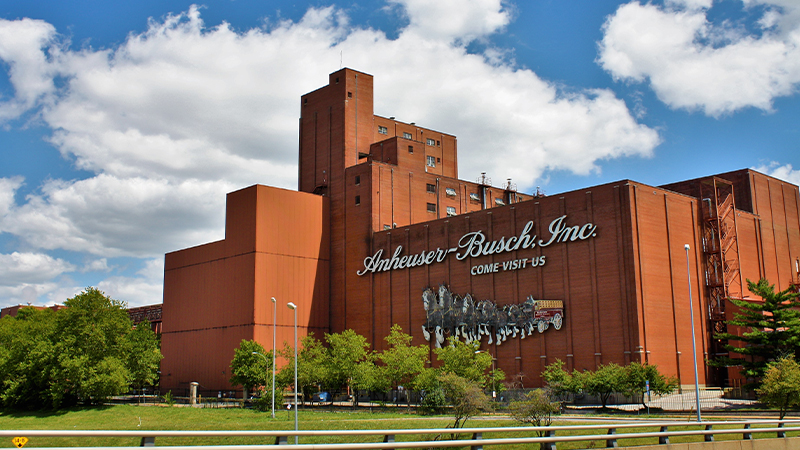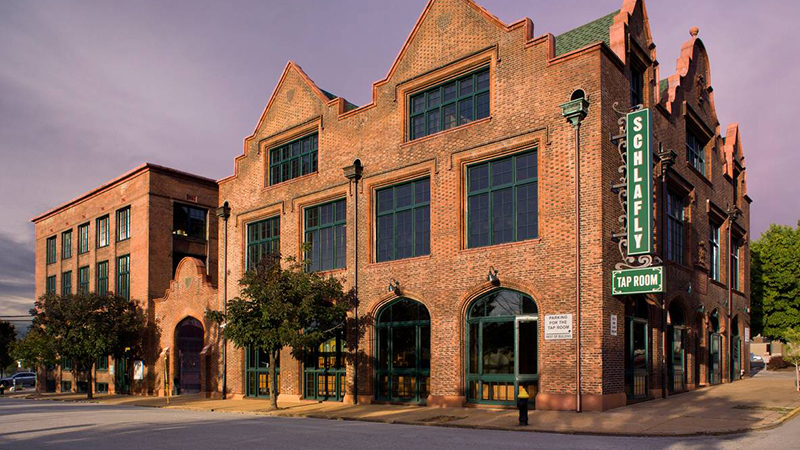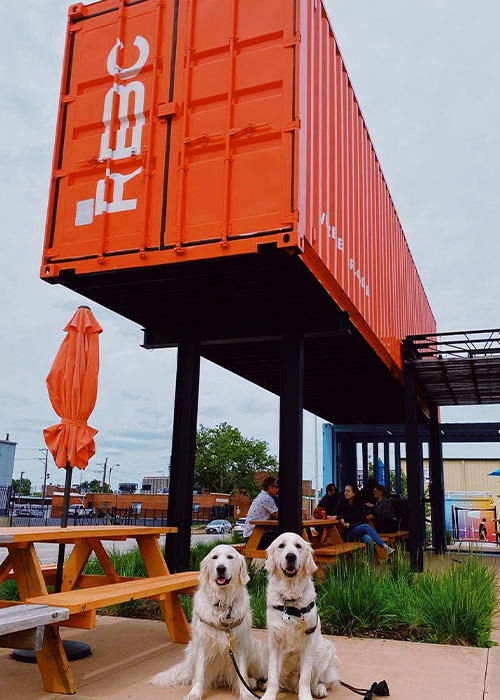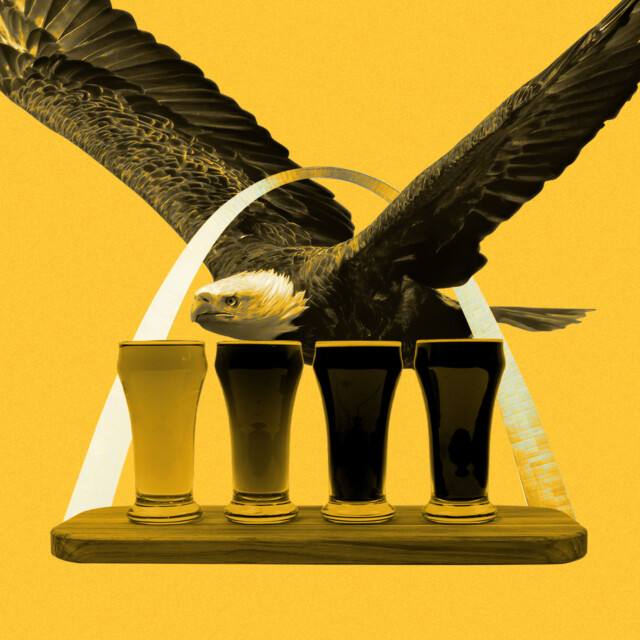“I tell everyone who comes to town that they should go see Anheuser-Busch,” says Chris Kinast, a head brewer at Perennial Artisan Ales. “It’s ridiculous to see the scope we craft beer in and the scope they do it in.” Fran Caradonna, CEO of Schlafly Beer, agrees. “People in St. Louis don’t say Anheuser-Busch, they just say ‘the brewery’ — it’s like knowing where the airport is,” she says.
In spite of this domineering force, craft breweries have been cropping up in St. Louis over the last 30 years, creating exciting and award-winning beer in the shadow of the industry’s 800-pound gorilla.

Anheuser-Busch (AB) is built into the fabric of St. Louis. Started in the 1850s, it grew to not only become the biggest brewer in the country, but as symbolically American as apple pie. “During Prohibition, AB kept everyone employed by creating other products and businesses. I think they created a loyalty that today’s generations probably don’t even realize,” says Caradonna. “People like Tom [Schlafly Beer founder] have a deep respect for them on a lot of levels.”
In 2008, the acquisition to become part of the new AB InBev corporation made the company the world’s largest brewer, but at a cost. “Locals were very disappointed that their brewery wasn’t owned by a local family anymore,” says Caradonna. Soon after the merger, the number of craft breweries skyrocketed and now, there are approximately 70 small breweries in the metro area — before Schlafly opened up shop in 1991, there wasn’t a single one. Even after he started, Schlafly and his team had to spend “15 or 20 years teaching people what craft beer is,” according to Caradonna. “In the beginning, AB mostly ignored Schlafly and small breweries because we were so small. It was sort of a fringe thing, but their brewers have always been extremely supportive of craft beer in St. Louis.”

In a city dominated by AB products, it’s hard for independent brewers to avoid the giant’s influence. “I love Busch beer, and most of the brewers I know here in St. Louis would sign on to that as well,” says Jonathan Moxey, head brewer at Rockwell Beer Co. “When we started thinking about brewing our own American light lager late last year, beers like Busch were the jumping off point, and then we had to think about how to make ours distinctly Rockwell.” Kinast concurs, saying, “I just released a corn lager that’s my ode to Busch beer because that’s what I drank and what my family drank growing up.” Florian Kuplent, brewmaster at Urban Chestnut Brewing Co., notes that the years he spent working at AB impacted how he views quality as a brewer. “They had a lot of tech, a lot of know-how, a lot of partners in the supply chain and that drive for quality has influenced me,” he says. “I made a lot of connections that help us now improve our processes and are happy to talk beer over a beer.”
Some may have thought in the beginning of St. Louis’s craft movement that brewers were crazy to start up on AB’s turf, but in reality, the challenge in St. Louis and across the country stems from a much more fundamental issue, which is that drinkers are turning to other options that include non-alcoholic beers, or forgoing beer altogether. To combat that, smaller craft breweries point out a distinction that separates them from companies like AB — the brewpub. Kinast heads up Perennial on Lockwood, a collaboration between his brand and local restaurant Olive + Oak, while Schlafly offers four different brewpub locations. “I think there’s going to be more focus on on-premise sales. It’s an easier way to connect to the consumer, it’s a direct way to present your products that you’re proud of and then explain that to the customer, the ingredients. and who made it.,” says Kuplent, whose Urban Chestnut Brewing Co. offers a biergarten and bierhall for guests. “For smaller local breweries like Rockwell, I think it’s more important than ever for us to embrace our own physical space and to attract guests to the brewery and our beer garden,” says Moxey. “It’s not enough to have just a cool space or good beer; it has to be both.”

Still, St. Louis and Anheuser-Busch are inextricably linked. In the long run, Caradonna sees AB’s presence as “almost entirely positive for craft beer.” But more importantly, it’s helped to solidify St. Louis’s appreciation and love for beer in all forms, providing a unique market that embraces local craft breweries. “Anheuser-Busch is dominant in terms of volume and market presence, but I don’t think it accurately captures the scene [today] to say they dominate the city,” Moxey says. “St. Louis has one of the most robust and vibrant craft beer communities in the country.” Kuplent sees much of the same. “St. Louis has a very long brewing tradition and it’s not just because of AB,” he says. “It doesn’t take much to get people excited about events that have to do with beer; there’s a lot of enthusiasm about beer and their brewing heritage.” As Caradonna simply puts it: “This town loves and appreciates beer on almost a spiritual level.”
